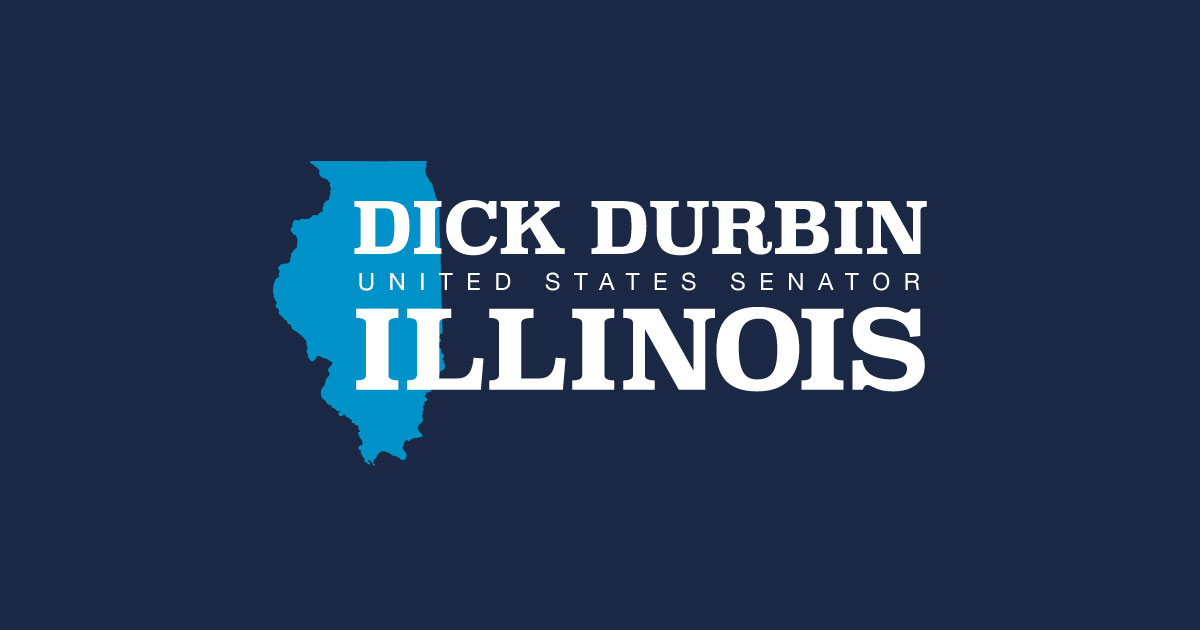Source: United States Senator for Illinois Dick Durbin
WASHINGTON – U.S. Senate Majority Whip Dick Durbin (D-IL), Chair of the Senate Judiciary Committee, today questioned witnesses during a Judiciary Subcommittee on Competition Policy, Antitrust, and Consumer Protection hearing titled, “A Prescription for Change: Cracking Down on Anticompetitive Conduct in Prescription Drug Markets.” During his questioning, Durbin discussed his longstanding efforts to bring transparency and competition to the pharmaceutical industry in order to lower drug prices for Americans.
Last month, the Government Accountability Office (GAO) released a report – requested by Durbin and Senate Judiciary Committee Ranking Member Chuck Grassley (R-IA) – which found direct-to-consumer (DTC) advertisements of prescription drugs contribute to an enormous amount of Medicare costs. Durbin asked David Mitchell, President and Founder of Patients for Affordable Drugs, whether direct-to-consumer (DTC) advertising serves any benefit to patients.
“The [GAO] found that between 2016 and 2018, advertised drugs on televisions and other places accounted for 58 percent of Medicare’s budget for medication. Coincidence? These ads ballooned Medicare’s spending to the tune of $320 billion over three years,” Durbin said. “When it comes to this advertising in television, since the United States and New Zealand are the only two countries in the world that allow it, what value is it to the consumer?”
Mitchell answered by stating that including prices in drug advertisements – which is not currently required – would help patients better understand what is happening with the costs of their medications and make decisions that are more informed. He also said these DTC ads are really only used to sell more drugs at higher prices.
Durbin continued by asking Geoffrey Levitt, Of Counsel DLA Piper and appearing on behalf of Pharmaceutical Research and Manufacturers of America (PhRMA), to respond to evidence that pharmaceutical companies are able to game the patent system to restrict competition and raise prices on patients. Durbin cited the inconsistency between PhRMA’s claims that efforts to lower prices would harm innovation with the fact that every new drug approval between 2010-2019 has benefitted from research funded by taxpayers through the National Institutes of Health (NIH), and the colossal amounts spent by pharmaceutical companies on advertising and stock buybacks, rather than research and development (R&D).
“The pharmaceutical industry responds to every single policy proposal on drug pricing by claiming it would ‘chill innovation’ in America—that a single penny in reduced profits could mean a freeze on lifesaving innovation,” Durbin said. “The thickets we’ve created in patent law cannot serve the purpose of research or innovation or the benefits to the consumer. It’s all about monopoly control of some of these drugs so you can profits for a longer period of time, isn’t that right?”
Levitt said it’s not easy to get a patent and that innovation does not stop upon approval of a product. However, Durbin cited data showing that the top 12 best-selling drugs in America each have an average of 71 patents and that 78 percent of all new patents obtained are for drugs that are already on the market.
Video of Durbin’s remarks is available here.
Audio of Durbin’s remarks is available here.
Footage of Durbin’s remarks is available here for TV Stations.
Durbin has sponsored a pair of bipartisan bills to increase transparency in DTC advertising for prescription drugs and to crack down on patent manipulation that blocks generic competition. Last month, Durbin and Grassley introduced the Drug-price Transparency for Competition Act (DTC Act). The DTC Act would require price disclosures on advertisements for prescription drugs, in order to empower patients and reduce spending on medications.
In 2019, Durbin and U.S. Senator Bill Cassidy, M.D. (R-LA) introduced the REMEDY Act to tackle the pharmaceutical industry’s practice of gaming the patent system to extend monopolies on lifesaving drugs. The bill removes an incentive for brand-name manufacturers to game the system by filing excessive follow-on patents and makes it easier for lower-cost generic competitors to come to market sooner. Many high-cost, brand-name drugs are shielded from competition because of the ability to manipulate the system by “evergreening” or filing numerous additional patents to their product in an attempt to forestall generic competition.
-30-
